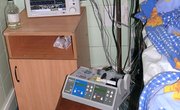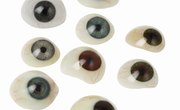Psychopharmacology is the study of medications used to treat mental illness. Medical doctors who treat patients with mental disorders must have a thorough understanding of protein-binding, half-life of medications, polymorphic genes and drug interactions. Clinical psychologists with doctoral degrees also pursue studies in psychopharmacology if their state allows them to have prescribing authority. A few universities have post-doctoral degree programs designed to educate psychologists and medical doctors in the principles of psychopharmacology.
Nova Southeastern University
The Center for Psychological Studies at Nova Southeastern University in Fort Lauderdale, Florida, offers a Master's degree in Clinical Psychopharmacology. The 33-credit-hour program, which includes two 100-hour practicums, is designed for the working professional. Classes meet one weekend a month from September to July, and coursework is supplemented with Web-based education. Students work closely thorough the program with a mentor, usually a boarded psychiatrist. Required coursework includes studies in neurophysiology, neurochemistry, pathophysiology, ethics and pharmacoepidemiology. Admission requirements include completion of an APA-accredited Doctoral degree in Clinical or Counseling Psychology or adequate progress toward that degree, successful completion of a professional ethics course or exam and basic knowledge of pharmacology as proven through course completion or an exam.
Farleigh Dickinson University
The Fairleigh Dickinson University School of Psychology offers a distance-based post-doctoral Master's degree in Clincial Psychopharmacology designed to be completed through videotaped lectures, use of online resources, chats and discussion boards, traditional readings and case formulation and presentation. Following completion of the 10-course sequence, which was designed to meet the American Psychological Association's model curriculum, students are eligible to sit for a comprehensive exam. Coursework, which includes classes in neuroscience, professional issues and practice management and treatment issues, can generally be completed in two years. A clinical practicum elective is also available.
New Mexico State University/Southwestern Institute for the Advancement of Psychotherapy
Another option for practicing psychologists interested in studying psychopharmacology is the interdisciplinary Master of Arts in Psychopharmacology program offered through New Mexico State University's Southwestern Institute for the Advancement of Psychotherapy in Las Cruces, New Mexico. Admission requirements include a doctoral degree in psychology and a current state license as a psychologist. The program includes live classroom instruction and online work. The live classroom instruction is available at locations throughout New Mexico or via a home computer. Coursework includes classes in neuroanatomy, pathophysiology and ethics. The program also includes an 80-hour practicum in which the psychologist-in-training works with a primary care physician.
Other Pharmacology Degree Programs
For those more interested in the research aspects of psychopharmacology, a degree in cellular and molecular pharmacology is an option. A number of colleges offer pharmacology degrees at the graduate level, including Rutgers University in New Jersey, Boston University in Massachusetts, Columbia University in New York and Emory University in Georgia. A few bachelor-level programs exist, including ones at Duke University in North Carolina, Ohio State and the University of Houston in Texas. Cellular and molecular pharmacology degrees offer students the opportunity to do research into topics of interest, including psychopharmacology.
Related Articles
References
Resources
Writer Bio
Jody Becker has been an award-winning journalist since 1988. Her work has appeared in "Asphalt Contractor," "Soil & Groundwater Cleanup," "The Informational Management Journal," "Courier Magazine," "Applicator," "Scaffold Industry" and the "Professional Window Cleaner." She has a Bachelor of Science in journalism from the University of Kansas.











